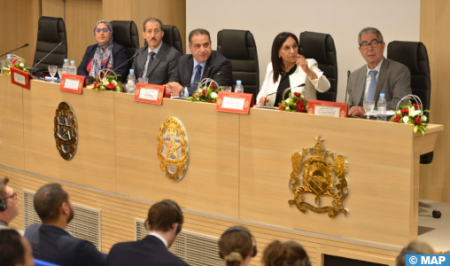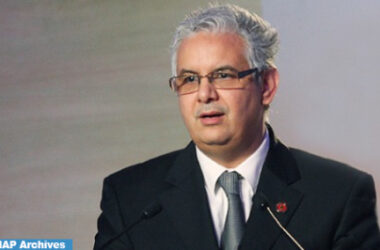Hosted by the National Council for Human Rights (CNDH) and the Directorate General of National Security (DGSN), this seminar is part of the immediate implementation of the framework agreement of partnership and institutional cooperation on training and strengthening respect for human rights in the exercise of police functions, signed between the two institutions on September 14.
This seminar, the opening session of which was chaired by the Ambassador-at-Large in charge of human rights issues, former President of the Advisory Council on Human Rights, Ahmed Herzenni, aims to discuss the good practices regarding the implementation of efficient legal and procedural safeguards for the prevention of torture, cruel, inhuman and degrading treatments, which could occur during the arrest, the hearing and in police custody.
This study day will allow participants to discuss legal and judicial safeguards for the prevention of torture, at the national and international levels, exchange on the implementation of practical measures to prevent torture, cruel, inhuman and degrading treatments, raise awareness of the role of monitoring and complaints mechanisms, and share their good practices.
Speaking on behalf of the DGSN at the opening of this event, Judicial Police Central Director Mohamed Dkhissi said that the international conference perfectly illustrates the openness of the Kingdom on humanistic values and its determination to continue to disseminate the culture of human rights and consolidate the momentum of reforms and projects launched under the enlightened leadership of HM King Mohammed VI.
These reforms “have enabled our country to promote an institutional system capable of strengthening and enshrining the principles and values of human rights,” he said.
“In line with the provisions of the Constitution of 2011 (… ), the DGSN has developed a complementary and integrated vision in terms of human rights and respect for freedoms through the implementation of an action plan to prevent torture and other cruel, inhuman or degrading treatments or punishment during arrest, hearing and custody,” Dkhissi stated.
The DGSN has placed particular emphasis on the establishment and strengthening of rights and freedoms in police practice, especially during judicial investigations, issuing a new generation of memos that emphasize the exemplary execution of the various legal guarantees granted either to suspects, victims or witnesses, he added.
The study day brings together national and international personalities, besides representatives of the United Nations human rights mechanisms.










